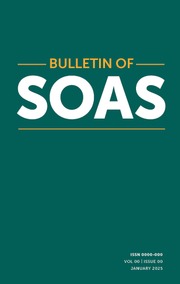It is a rare occasion when a reviewer has the opportunity to comment on an outstanding work of Georgian literature in English translation. Indeed, the number of such occasions during my lifetime can be counted on my hand, and most of them are linked to the name of Donald Rayfield, who has translated the texts that are the subject of this review. Alongside his landmark history of Georgian literature (three editions in 1994, 2000, and 2010), Rayfield has over the years, and in many ways single-handedly, transformed the status of Georgian literature in the Anglophone world. He has translated such classic texts as Mikheil Javakhishvili's Kvachi Kvachantiradze (first published in 1924; translation published in 2015), alongside two novels by the contemporary Georgian writer Otar Chiladze (A Man Was Going Down the Road in 2012, and Avelum in 2013).
Amid this outpouring of Georgian prose, Rayfield's contribution to making one of Georgia's most famous poets, Vazha Pshavela, available in English has gone undervalued. Rayfield's landmark translation of Vazha's three narrative poems (“Aluda Ketelauri”, “Host and guest”, and “The Snake-eater”), published in Tbilisi in 1981, has remained unjustifiably obscure, and inaccessible in European and American libraries. These translations are here reprinted, alongside nine additional fresh translations of Vazha's shorter poems accompanied by the Georgian originals, and a new introduction familiarizing Vazha to the Anglophone reader (also by Rayfield).
The book is accompanied by visual representations by three different artists, each of which may be regarded as an interpretation of different aspects of Vazha's oeuvre: the fashion designer Manana Antelidze, the London-based artist Andro Semeiko, and Moscow-based artist Leonid Semeiko. Georgian writer Ana Kordzaia-Samadashvili offers personal reflections on her literary encounters with Vazha in her writing life (it would have been helpful to have had her texts introduced and contextualized with the reception of Vazha beyond what is offered in the foreword). Concluding the volume is a series of reproductions from the “Knights from Pshav-Khevsureti” exhibit, held at the Tbilisi Literature Museum in 2017, where this project was first conceptualized.
Rayfield's translations, which are the most substantial component of the volume, are closely attentive to the original and sometimes beautiful. Among the most striking of the lyric poems is “To the Mountains” (pp. 34–9), which unfolds in the form of a monologue, a kind of love poem to the mountains. It might be said, however, that Vazha's narrative voice translates more readily into English than his lyrical voice. All three narrative poems are classics that deserve a wider readership for their accounts of friendship across divides of religion and culture (“Aluda Ketelauri”), of hospitality as the foundational value of mountaineer ethics (“Host and Guest”), and the relationship between humans and their natural environment (all three poems).
Many Georgian readers and scholars of Georgian literature consider Vazha to be the single greatest poet in that language, on a par with Shakespeare and Goethe. Yet what is perhaps even more interesting for a general reader is to consider what makes Vazha's poetry distinct. As Rayfield's translations reveal, it is Vazha's narrative poems (Rayfield prefers the term “heroic poems”) that make him sui generis as a writer, for while these poems are suffused with intertexts, they have no direct counterpart in world literature in terms of their ability to compress epic breadth into the relatively small space of a poem. Rayfield's introduction to the volume should be commended for helpfully situating Vazha within the framework of world literature, and also explaining the challenges that Vazha faced in having his work appreciated during his lifetime.
The artistic contributions offer a range of ways of viewing Vazha's work. Some are in abstract mode (the “How Will I Fly” series by Andro Semeiko), while others interpret the poet's persona (the “Vazha in the Mountains” series by Andro Semeiko). Others offer a more forthrightly ethnographic engagement, such as the reproductions from the Tbilisi Literature Museum exhibit and the interpretations based on fashion design by Manana Antelidze (the “Transformation” series).
It is worth highlighting the contribution of the Georgian Literature in Translation Program within the Georgian Ministry of Culture, Tbilisi, in making this work, and so many other classics of Georgian literature past and present, available in English. Would that every minimally translated literature had such a programme to support its dissemination.
Taken together in all of its many different parts, this volume makes a significant inroad into the sparsely populated field of Vazha Pshavela studies in languages other than Georgian, as well as Georgian literature generally. Readers wishing to acquaint themselves with this greatest of Georgian poets are now much more richly equipped for their journey than they were even a few years ago; they can read this book alongside my translation of Vazha's prose, The Death of Bagrat Zakharych and other Stories by Vazha-Pshavela (London, 2019), for an even fuller perspective. Yet much work remains before Vazha can be considered fully integrated into the canon of world literature. His prose criticism in particular deserves fuller attention, and the study of his poetry would benefit from more comparative work.


